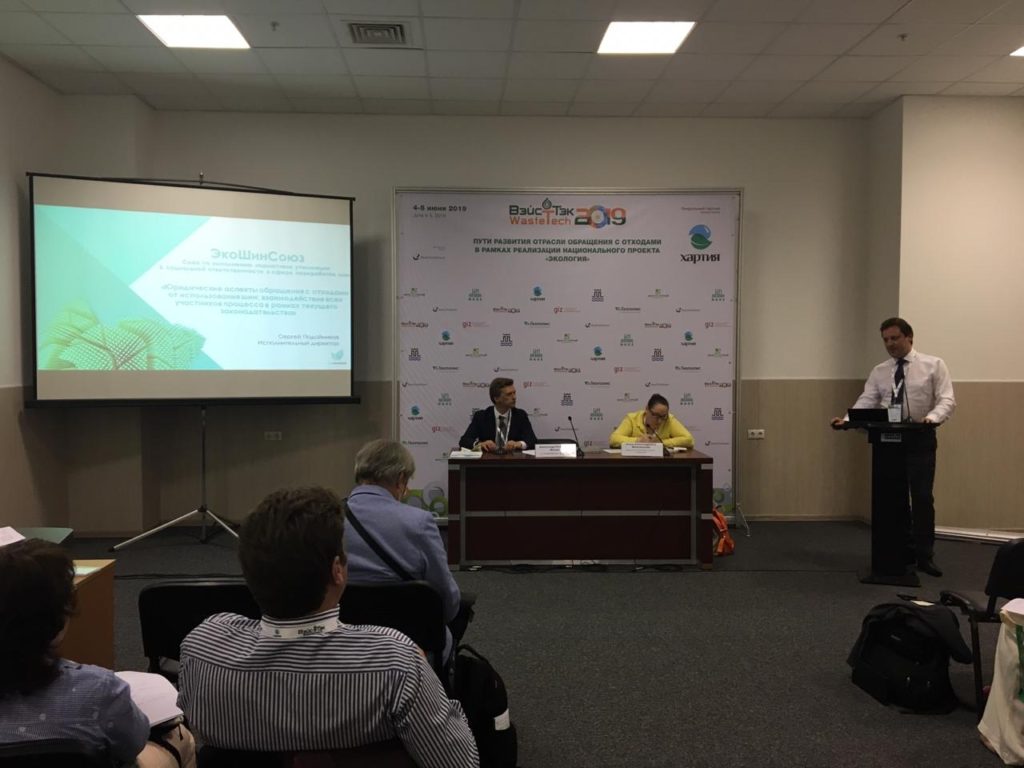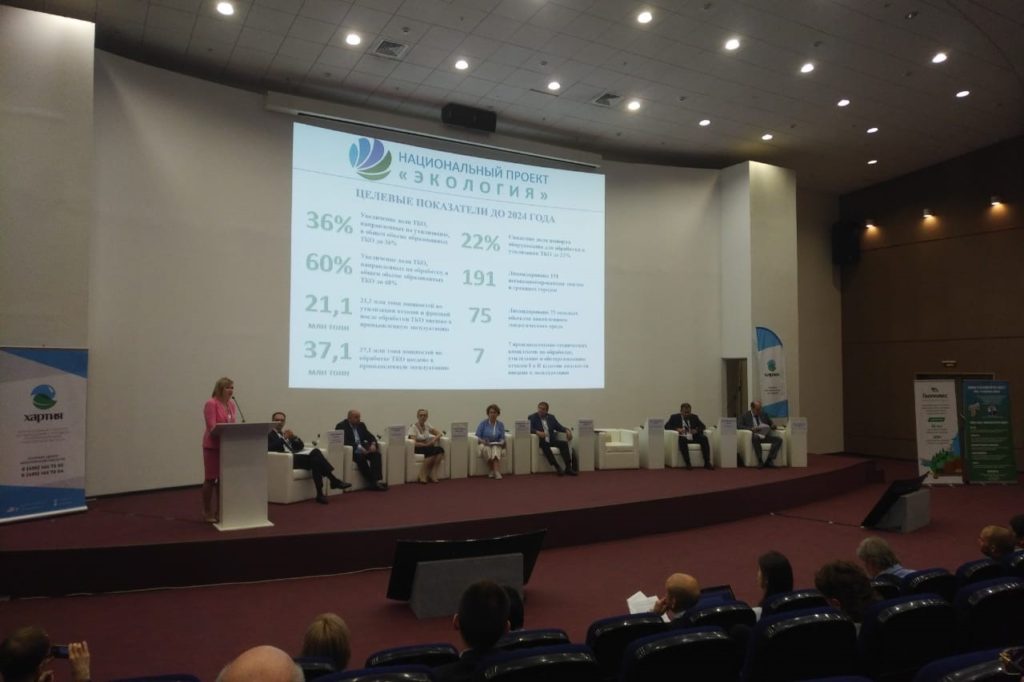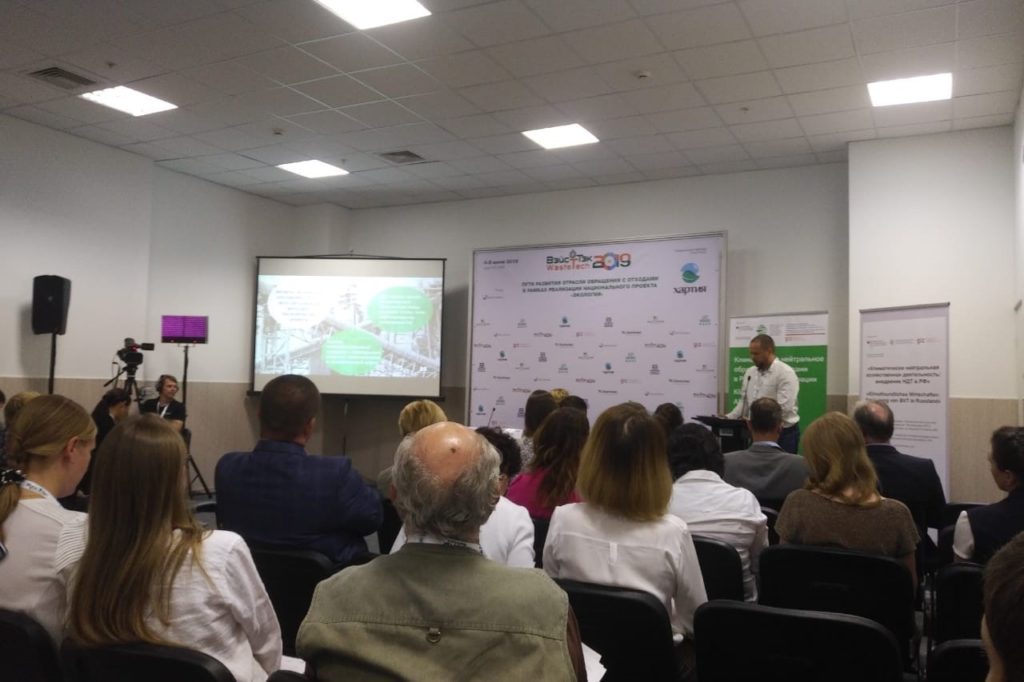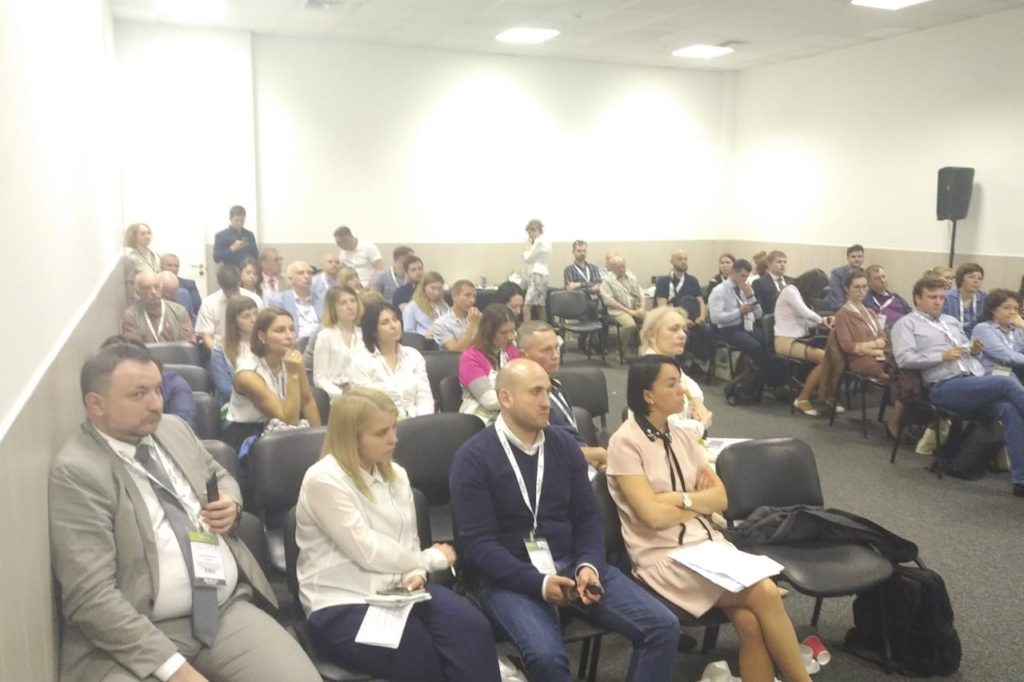On June 4-5, 2019 Sergey Podoynikov, Executive Director of EcoTyresUnion, and Anna Zakharova, legal counsel, took part in the 11th international forum on waste management, environmental technologies and renewable energy «Waystec-2019».
The forum included multi-format events dedicated to discussing the current state and prospects of the waste management industry. Special attention in the forum program was paid to the issues of extended producer responsibility, including legal regulation.
The round table «Waste sales: hidden risks. Problems of EPR performance by producers of consumer goods. The role of retail in independent waste recycling by EPR subjects.» became a specialized platform for discussing EPR related issues, where Sergey Podoynikov made a presentation: «Legal aspects of waste tyres management: interaction of all parties involved in the process within the current legislation».
In his report, Sergey Podoynikov outlined the gaps and conflicts in the current legislation of the Russian Federation, identified in the field of waste tyres management.
Structurally, depending on the parties involved, Sergey Podoynikov classified the shortcomings of the current relevant legislation and law enforcement practice in the context of organizing the process of waste accumulation into 3 groups:
Group 1 includes legislative gaps in the interaction of recycling companies with tire service centres. Thus, in this aspect, the current legislation has the following unresolved issues:
- Who is the waste producer?
- Status of a tire service centre?
- Filling out 2-TP form?
- Documenting the transfer of a waste tire from an individual to a tire service centre and a recycling company?
- What is the difference between a waste accumulation site and a waste collection site?
Group 2 combines problems related to the interaction of recycling companies with regional operators. The following legislative gaps have been identified:
- Who is responsible for the formation of waste from the use of goods at the sites of SMW accumulation?
- Who is the owner of waste from the use of goods found at the sites of SMW accumulation /when sorting SMW?
- How to organize and document the transfer of waste from the use of goods found at the sites of SMW accumulation /when sorting of SMW, to the recycling company?
Group 3 deals with cases of interaction of recycling companies with local authorities. Even though there were no obvious legislative gaps in this area, the practice of such interaction is not widespread since it is difficult to encourage local governments to organize sites for the accumulation of waste tires.
The forum participants exchanged views on the prospects for further changes in waste management legislation and stressed that because of the consolidated actions of the business community, non-profit organization, scientific organizations it is possible to identify problematic aspects of the industry and determine ways to solve such an urgent issue for Russia as the reform of the waste management system.



